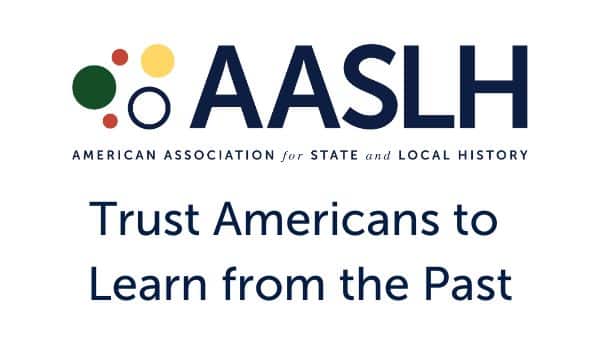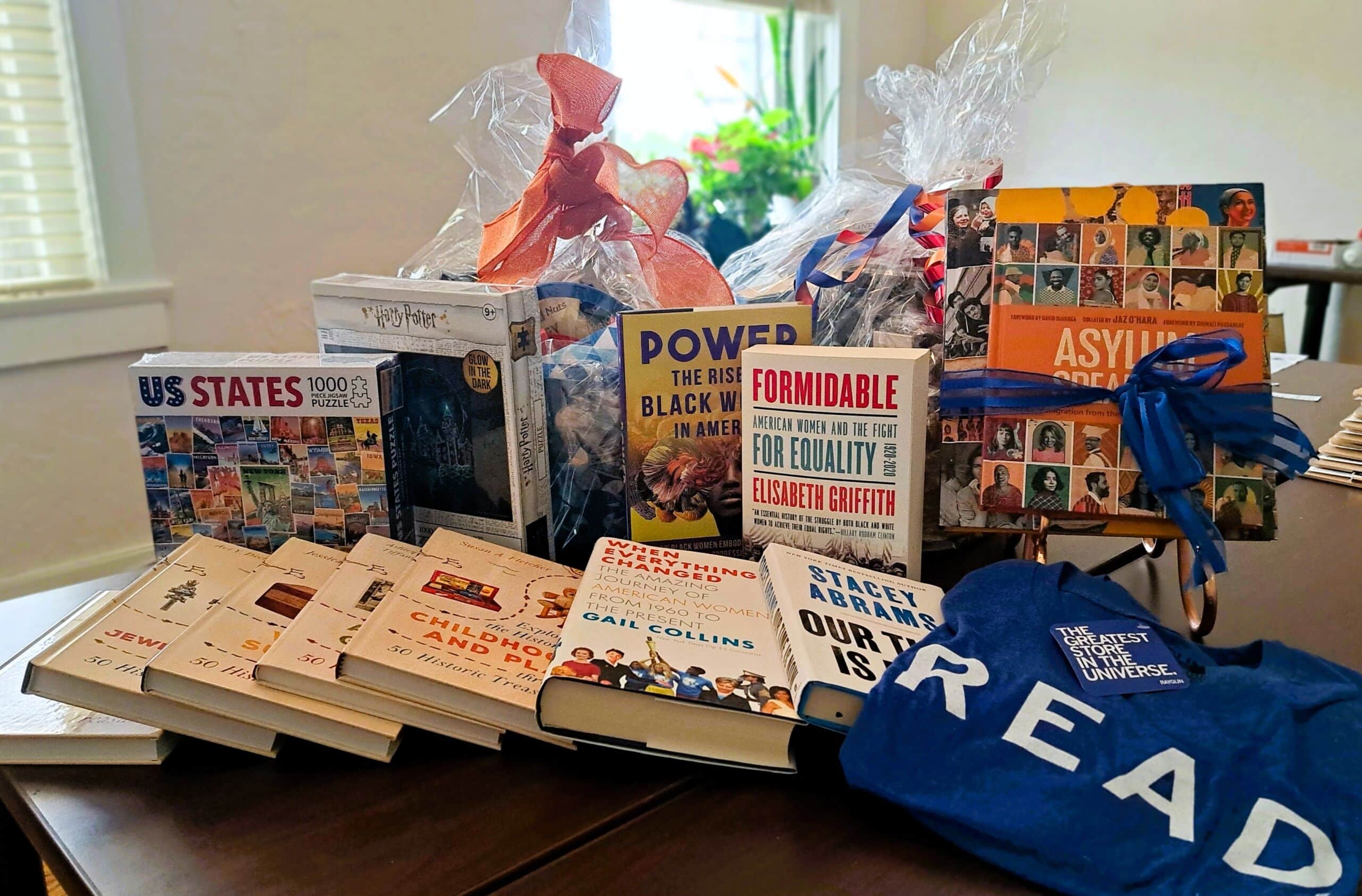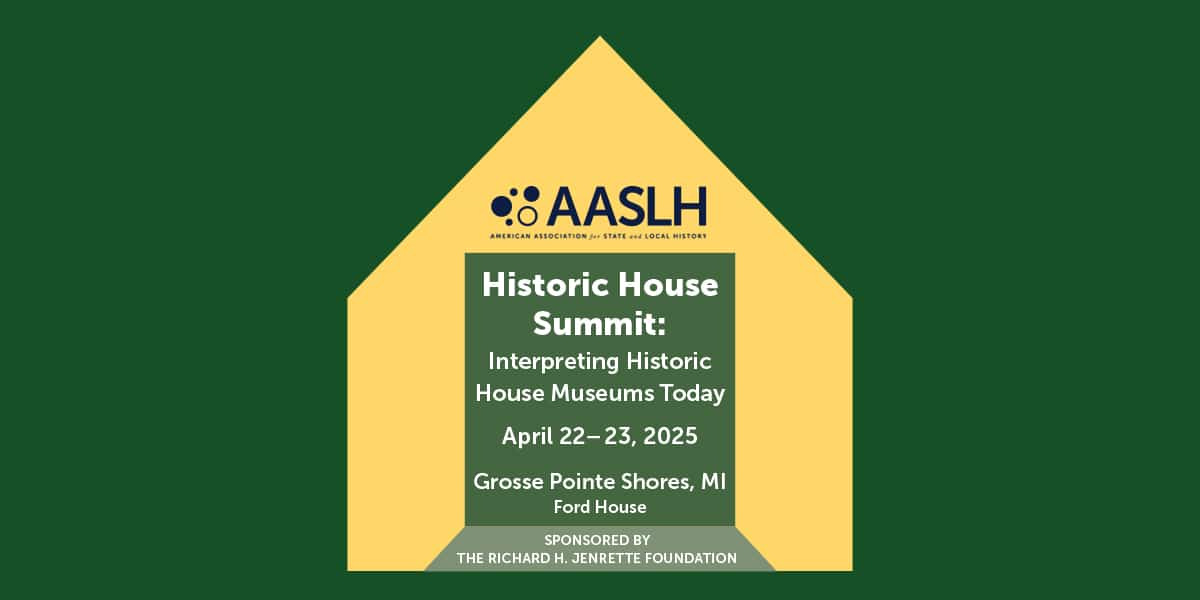
By John Dichtl, AASLH President and CEO
Inclusivity and relevance are core values at the heart of AASLH and central to conversations around the country in 2018. With “Truth or Consequences” as our 2018 conference theme, AASLH is heading to Kansas City ready to explore inclusion and equity across the history community.
At AASLH conferences over the past several years, we have increased our emphasis on the importance of talking and learning about diversity, inclusion, accessibility, and equity. Our 2018 Annual Meeting, which begins September 26, builds on this growing base. The AASLH Program Committee, local Host Committee, Diversity & Inclusion Committee, Creativity & Experimentation Task Force, staff members, and others have worked together to use our meeting in Kansas City as an opportunity to continue advancing a more inclusive and equitable field. For example:
- Cheryl Brown Henderson is a keynote speaker. Ms. Henderson is one of the three daughters of the late Rev. Oliver L. Brown who, in the fall of 1950 along with twelve other parents led by attorneys for the NAACP, filed suit on behalf of their children against the local Board of Education and whose case helped lead to the landmark Supreme Court decision Brown v. Board of Education of Topeka, Kansas.
- Our local hosts raised $20,000 in support from the William T. Kemper Foundation for scholarships to make the conference more diverse and inclusive. Scholarships of $800 and $400 are for people in Missouri, Kansas, Nebraska, Oklahoma, Arkansas, Texas, and Iowa who bring diversity in areas such as ethnicity, gender, age, sexual orientation, socioeconomic status, and organizational capacity to support the conference’s theme of“Truth or Consequences.”
- We increased the value of AASLH’s Douglas Evelyn Scholarships for Diversity by raising the stipend from $500 to $700. The scholarships include the Annual Meeting registration, travel, and a one-year membership. AASLH is providing four scholarships for 2018.
- Latinos in Heritage Conservation will offer a session (Thursday, 1:45 pm) about local and national perspectives on social justice in historic preservation, equity in historic preservation, current challenges in preservation policy, education, and recruitment, alliances with underserved communities, and a vision for a future of historic preservation.
- Seven African American history museums will kick-off their participation in StEPs at the Annual Meeting. The National Museum of African American History & Culture and AASLH are working together to serve a cohort of seven organizations devoted to the research, preservation, and interpretation of African American history, art, and culture by guiding them through StEPs—AASLH’s “Standards and Excellence Program,” which helps institutions assess their policies and practices and benchmark themselves against national standards.
- There is a session (Friday, 8:30am), “Discovering Truth and Unconscious Bias: A Continued Conversation,” facilitated by members of the AASLH D&I Committee.

Troost Avenue c. 1920. Courtesy of the Black Archives of Mid-America.
- A tour and a session about the legacy of segregation. “The Story of Segregation in Kansas City,” (Friday, 8:30am), which will focus on landmarks pertinent to the story of segregation, integration, and the failures of integration. “The Truth about Troost: The Consequences of Engaging Diverse Students in Conversations about Race Based on Local History,” (Friday, 12:30 pm), highlights an innovative local program that emphasizes the relevance of the history of segregation. The session will include students and teachers from Kansas City schools.
- Planned a second annual, bigger and better, Diversity & Inclusion Mixer (Thursday, 5:30pm). It will be a chance to meet with current members of the Diversity & Inclusion Committee, Council members, and other conference attendees, and learn more about how the D&I Committee is assisting AASLH staff and Council in their efforts to build inclusionary practices into their work and the public history field at large.
- We have established dedicated meeting space for many of the sessions dealing with diversity and inclusion issues. Flip charts will be available to preserve and continue conversations on these topics throughout the meeting. Sessions being held in this dedicated space include:
- “Detroit67: Looking Back to Move Forward—Truth Leads to Transformation”
- “Consequences Be Damned: Slavery Remembered and the Risk of Acknowledging Hard Truths”
- “Confronting Uncomfortable Truths: The American Legacy of Repression and Resistance”
- “Discovering Truth and Unconscious Bias: A Continued Conversation”
- “Crumbling Pedestals and Monumental Follies: Truth and/or Consequences After Charlottesville”
- “Racism: Is Your Museum Ready to Talk about It?”
- “Consequences of Truth for Historic Sites”
- “The Inclusive Historian’s Handbook: A Conversation with the Editors”
- Organized a full-day workshop (Wednesday), “To Be More Inclusive: Training and Resources in the Arts and Humanities.” Led by members of the AASLH D&I Committee, participants will receive the necessary training and resources to ensure that diverse viewpoints representing race, ethnicity, culture, disabilities, and sexual identity are integrated and practiced. Diversity & Inclusion Committee members are reaching out through the Host Committee to invite members of the local community.
- A Stopping Stone installation will take place at the Harris-Kearney House in Kansas City, in conjunction with the Annual Meeting. (Date and time TBD.) The Stopping Stones project “is an historical reparations endeavor designed to bring attention to the persons and places impacted by slavery, to reveal the roots of prejudice and hatred against African Americans in the United States and to catalyze actions to extinguish their impact. The project creates memorials (stopping stones) in the places where enslaved people were held and labored, and each installation engages local sponsors and citizens.” This event will be open to the public.
- Joseph McGill of the Slave Dwelling Project will be overnighting during the conference in one of the two historic houses of the Wornall Majors House Museums. (Date and time TBD.) Mr. McGill’s visit will include a fireside chat about the legacy of slavery. Through Mr. McGill’s travels and overnight stays, the project’s mission is to identify and assist property owners, government agencies, and organizations to preserve extant slave dwellings.
All of these efforts are new or improved this year, something extra on top of the usual AASLH meeting grappling with diversity, inclusion, relevance, and honesty.
What is particularly exciting about the last three examples on the list above are that they are activities that will connect the conference to the local communities of Kansas City, Missouri, and Kansas, inviting residents of the metro area to interact with registered conference goers. We are eager to continue to experiment in new and creative ways to move participants outside of the walls of the convention center and downtown hotels, and to open the Annual Meeting to the wider world.



